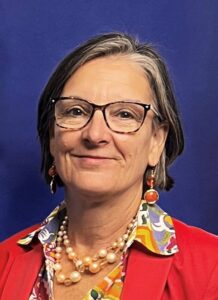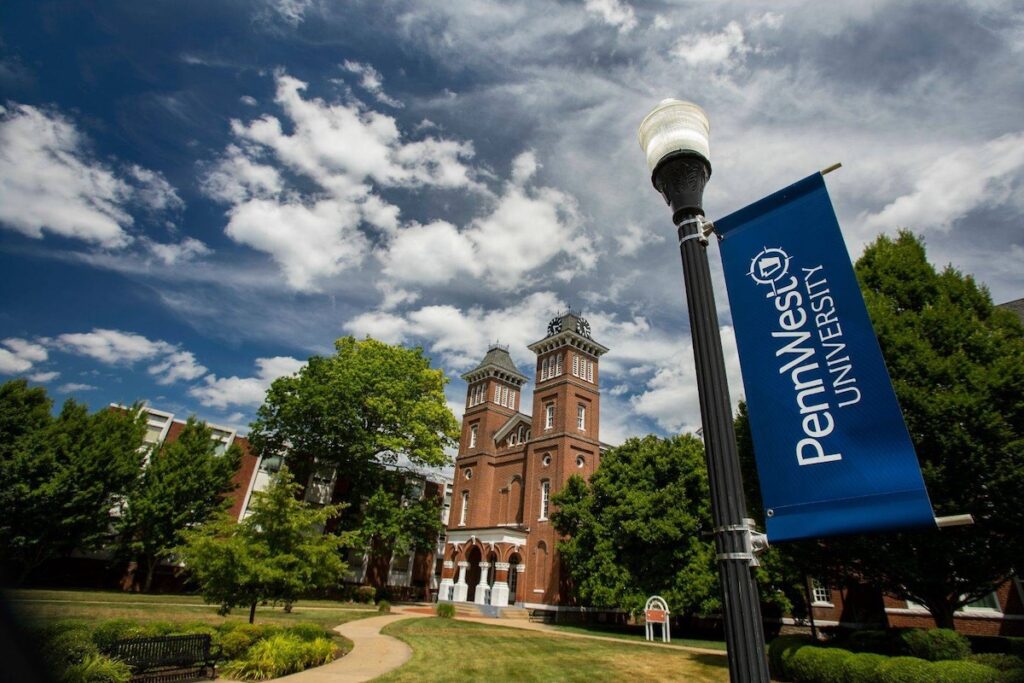When students, faculty, staff, and administration left the Pennsylvania State System of Higher Education (PASSHE) campuses on Thursday, March 12, 2020, they expected to return for classes as usual the next day. That Friday, leaders across the system’s 14 campuses, like others around the nation, got the call. They had to immediately transition to online learning, an impact felt by over 82,500 students and 5,500 faculty members. What they couldn’t have anticipated is that this massive shift would become the catalyst for something far more transformative—a shift towards a comprehensive and unified approach to teaching excellence that transcends individual campuses across the state system.
“We were woefully unprepared,” admitted Diana Rogers-Adkinson, the vice chancellor and chief academic officer at PASSHE.

This pivotal moment arrived as higher education faced a national crisis of confidence. Since 2015, Gallup polls have shown a steady erosion of public trust. In less than eight years, American confidence in the sector had fallen by 21 percentage points, dipping below a majority. With students and families already asking hard questions about the value of a degree, the pressure was immense. What began as an emergency response was actually a wake-up call to re-evaluate the very nature of how a state system approaches teaching excellence.
Challenge Beyond Technology
Faced with an overwhelming change, faculty had to quickly adapt. As James Fisher, interim provost and vice president for academic affairs at PennWest University, put it, they had to “MacGyver the process” of teaching online overnight. Moving from hands-on labs and face-to-face seminars to a world of Zoom links and digital assignments exposed a deeper problem. With institutional integrations in 2022 creating multi-campus universities like PennWest, the system had to ensure that a student at one campus received the same quality of education as at any other. An inconsistent experience was not an option.

The old siloed approach was no longer sufficient. According to Rogers-Adkinson, “pedagogy has been singularly owned by the individual faculty member in their individual room.” PASSHE needed a shared language and a common standard for what great teaching looks like, regardless of whether it is in person or online.
Their experience reflects a broader truth in higher education: most instructors are experts in their fields, yet they have rarely received the tools or training to be expert teachers.

Partnership for Lasting Transformation
The search for that common standard began with a highly successful pilot program at one PASSHE institution, Commonwealth University – Bloomsburg, which laid the groundwork for the system-wide engagement that followed.
PASSHE found its answer in a strategic partnership with ACUE, choosing to expand on Bloomsburg’s evidence-based approach, seeking lasting transformation over temporary measures. Faculty across multiple campuses enrolled in ACUE’s nationally recognized courses, learning and implementing practices informed by its Effective Teaching Framework.
This was not an abstract concept; it was a new toolkit of competencies faculty could use on day one. They gained active learning practices like Think-Pair-Share exercises to ensure students were co-creators of knowledge, not just passive recipients. They employed the Question Formation Technique to teach students how to ask better questions and take ownership of their learning. The focus shifted from simply delivering content to creating an intentional student experience.
Lacey Fulton, a faculty member in the first cohort, described it not as a “complete overhaul” of their teaching, but as a “push beyond what we were doing that helped all of us to level up.” This sentiment is personified by Fulton herself, who went from not knowing what ACUE was to becoming one of its biggest champions. “I’ve been evangelizing ACUE all throughout PennWest,” she shared proudly.
Tangible Change in Culture and Confidence

The results have been nothing short of a culture shift. “I feel like, as a system, a lot of times we used to see each other as competition, and now we’re really leaning into the whole sister school idea,” noted Fulton. The enthusiasm became so palpable that it won over the biggest skeptics. “I’ve even heard some of the university’s biggest curmudgeons brag about ACUE,” Rogers-Adkinson said.
This groundswell of faculty support is demonstrated by clear data released by PASSHE in February 2025:
- Over 500 unique faculty members have participated across more than 550 ACUE course completions since spring 2021.
- The completion rate for enrolled faculty is an impressive 89 percent.
- Faculty have already implemented over 3,000 new evidence-based practices in their classrooms.
- Confidence in Promoting Higher Order Thinking jumped from 45 percent to 90 percent after ACUE certification.
- Confidence in Designing an Effective Course and Class soared from 54 percent to 96 percent.
Student Impact of Excellent Teaching

A powerful success story comes from Gage Gray, a first-generation college student who arrived on a one-track path. “Ever since I could speak, I pretty much said that I wanted to work with animals. I wanted to be a veterinarian,” he said. For him, undergrad was just a means to an end, a step toward veterinary school.
Then he met instructors who, armed with ACUE-informed practices, taught differently. Working as a peer mentor, he saw a classroom that was alive with energy and connection. On the first day, a creative icebreaker involving a fictional bear sparked immediate, humorous debate among students. He witnessed professors care so deeply that they would drive an hour back to campus in the evening just for extra study sessions. The passion was infectious.
“It didn’t feel like it was class, because it was just the passion behind it,” Gray remembered. “They have completely shown me a different world. And I said, ‘Okay, I love higher education because of these people.’” His dream didn’t just change; it expanded. Today, Gray works at the University of Pittsburgh in a role that perfectly merges his two passions: a career in higher education working with the university’s research animals.
Practical Lessons for Institutional Leaders
PASSHE’s journey offers a clear blueprint for other institutional leaders. Their success reveals several powerful, replicable strategies for driving systemic change.
Consistent teaching standards are a foundation for course sharing. By using shared pedagogy, the system creates the conditions to save valuable, low-enrollment majors by offering them across multiple campuses, which would be impossible for any single institution to sustain.
PASSHE develops internal champions for great teaching, empowering key faculty members to create a multiplier effect. These faculty members evangelize best practices among their peers, creating a sustainable cycle that scales the training’s impact organically.
Feedback from newly trained faculty informs tech investment. The faculty provide clear, user-driven data on technology needs, allowing the administration to move beyond guesswork and make smarter investments in instructional technology that directly support great teaching.
To embed great teaching into the institutional DNA, PASSHE leaders are planning to integrate pedagogical training into faculty career milestones, making it an explicit step on the path to tenure. This creates a powerful incentive for all faculty to become master teachers.

Building the Future—Together
The journey that started with a crisis has become a movement. The success has attracted new investments to expand the ACUE cohorts at PASSHE to meet overwhelming faculty demand. Leaders now see the partnership as critical for navigating the future, including new opportunities like artificial intelligence. Fisher calls the training “almost imperative” for every faculty member to engage in careful thought about how they’re teaching in a new digital age.
By investing in the science of teaching with ACUE, PASSHE is not just improving classrooms; it is building a more resilient and innovative system that delivers on the promise of higher education. As institutions across the country grapple with their own challenges, the question is no longer if a crisis will come, but how they will choose to respond. In developing its newly revamped ACUE Complete suite of services for partner institutions, ACUE has the answer of how to provide faculty with the tools and strategies needed to ensure student success where it begins: in the classroom.
